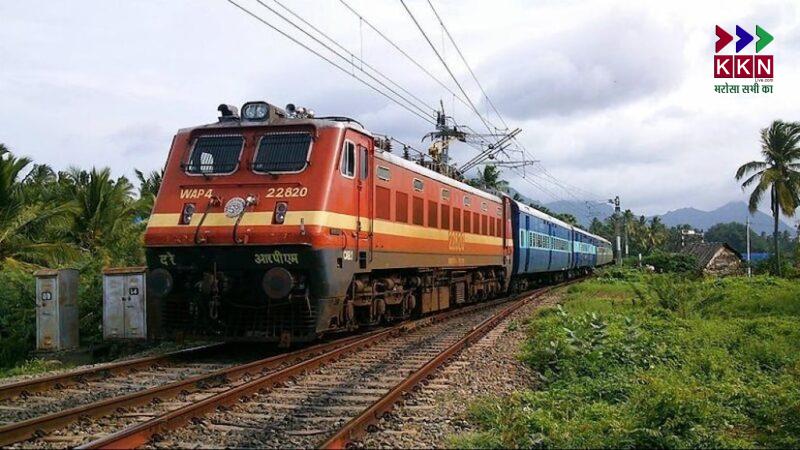
In a significant move to ensure the safety and efficiency of train operations across India, the Railway Board has sent an important advisory to all railway zones. The letter emphasizes the importance of safeguarding signal and telecommunication cables during infrastructure work. The board highlighted that any damage to these cables could pose serious risks to the safety of train services, leading to potentially disastrous consequences. This step is part of the railway’s ongoing efforts to enhance safety and reliability in train operations.
The Importance of Signal and Telecommunication Cables
Signal and telecommunication cables play a crucial role in ensuring the smooth operation of train services. They are responsible for transmitting vital information regarding train movements, signals, and other operational aspects. Any damage to these cables can result in signal failures, leading to operational disruptions, delays, and in some cases, accidents. These issues, if not addressed in a timely and careful manner, could have severe repercussions on railway safety and the overall functioning of the system.
Safety Risks and Consequences of Cable Damage
The letter from the Railway Board pointed out that repeated incidents of signal failures due to damaged cables have posed significant threats to the safety and reliability of train services. The board warned that if adequate precautions are not taken, such incidents could result in catastrophic outcomes. The letter also mentioned that while safety instructions have been issued periodically to protect the cables along railway tracks, the damage to cables continues to occur. The Railway Board has stressed the need for greater vigilance in handling infrastructure projects that may impact signal and telecommunication systems.
Ongoing Infrastructure Projects Across Railway Zones
The Railway Board’s letter also drew attention to the ongoing large-scale infrastructure projects being undertaken across various railway zones. These include track doubling, yard remodeling, construction of boundary walls, Limited Height Subways (LHS), Automatic Block Signaling (ABS), and the installation of Kavach, an automatic train protection system. While these projects are crucial for improving the overall safety, capacity, and reliability of the railway network, the Railway Board emphasized that they must be carried out with the utmost care to prevent any damage to the signal and telecommunication cables.
Measures to Prevent Damage to Cables
To mitigate the risks associated with cable damage, the Railway Board has suggested several precautionary measures. One of the key recommendations is to relocate utility cables before starting excavation work. It is also critical to ensure proper coordination between various departments before commencing any work near or along the tracks. Another important suggestion is to implement an integrated cable route plan, which has already been shared with all zones. The board reminded the railway authorities that these measures were communicated in writing multiple times in 2023, outlining the necessary precautions before commencing any infrastructure work.
Non-Compliance and Recent Incidents of Cable Damage
Despite the repeated advisories and clear instructions, the Railway Board noted with concern that many officials have not been following the safety guidelines. As a result, there have been several incidents of signal cable damage in recent times. The board particularly pointed out that infrastructure projects related to track doubling, the installation of automatic train protection systems (Kavach), and modern signaling systems are currently underway in almost all divisions. These projects require close attention and care to avoid damaging the sensitive cables that support the signaling systems.
Challenges in Balancing Infrastructure Work with Safe Operations
An official from the Railway Board highlighted that while it is challenging to continue infrastructure work alongside regular train operations, ensuring safety should always remain the top priority. The official emphasized that there are sufficient instructions and safety measures in place, and these must be adhered to strictly. Any shortcuts or lapses in following these safety protocols could lead to severe consequences. The official further stressed that while the expansion and modernization of the railway network are essential, these efforts should never come at the cost of safety.
The Railway Board’s advisory to all railway zones is a timely reminder of the critical importance of maintaining the integrity of signal and telecommunication cables during ongoing infrastructure works. The board’s call for greater vigilance and adherence to safety protocols underscores the need for a balanced approach to modernization and operational safety. As the railway network continues to expand and upgrade, it is crucial that all stakeholders prioritize safety and take proactive measures to prevent accidents and disruptions caused by damaged cables.
With several major infrastructure projects underway across India, including track doubling, the installation of modern signaling systems, and the expansion of automatic train protection systems, the railway sector is undergoing significant changes. However, it is essential that these changes do not compromise the safety of train services or the reliability of the signaling systems that are vital for smooth operations.
The Railway Board’s focus on safeguarding cables and ensuring proper coordination among departments is a step in the right direction. It is hoped that by following these guidelines, railway authorities can prevent further incidents of cable damage, ensuring the safety and efficiency of India’s vast railway network.